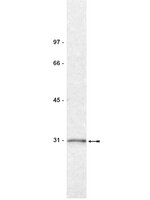Validation of IKK beta as therapeutic target in airway inflammatory disease by adenoviral-mediated delivery of dominant-negative IKK beta to pulmonary epithelial cells.
Matthew C Catley, Joanna E Chivers, Neil S Holden, Peter J Barnes, Robert Newton
British journal of pharmacology
145
114-22
2004
Zobrazit abstrakt
Asthma is an inflammatory disease of the lungs and the transcription factor NF-kappa B regulates the production of numerous inflammatory mediators that may have a role in the pathogenesis of asthma. Hence, the signalling pathways leading to NF-kappa B activation are considered prime targets for novel anti-inflammatory therapies. The prevention of NF-kappa B activity in mice, through the knockout of IKK beta or p65, causes fatal liver degeneration in utero making it difficult to determine the full implications of inhibiting NF-kappaB activity in tissues physiologically relevant to human diseases. This study used adenovirus delivery of a dominant inhibitor of NF-kappaB (I kappa B alpha delta N) and dominant-negative IKK alpha (IKK alpha(KM)) and IKK beta (IKK beta(KA)) to investigate the role of the individual IKKs in NF-kappa B activation and inflammatory gene transcription by human pulmonary A549 cells. Overexpression of IKK beta(KA) or I kappa B alpha delta N prevented NF-kappa B-dependent transcription and DNA binding. IKK beta(KA) also prevented I kappa B alpha kinase activity. Similarly, IKK beta(KA) and I kappa B alpha delta N overexpression also inhibited IL-1beta- and TNF alpha-dependent increases in ICAM-1, IL-8 and GM-CSF in addition to IL-1beta-mediated increases in cyclooxygenase-2 expression, whereas IKK alpha(KM) overexpression had little effect on these outputs. IKK beta(KA) also reduced cell viability and induced caspase-3 and PARP cleavage regardless of the stimuli, indicating the induction of apoptosis. This effect seemed to be directly related to IKK beta kinase activity since I kappa B alpha delta N only induced PARP cleavage in TNF alpha-treated cells. These results demonstrate that inhibition of IKK beta and NF-kappa B suppresses inflammatory mediator production and reduces A549 cell viability. Thus, novel therapies that target IKK beta could have potent anti-inflammatory effects and may be beneficial in the treatment of certain cancers. Celý text článku | | 15723090
 |









